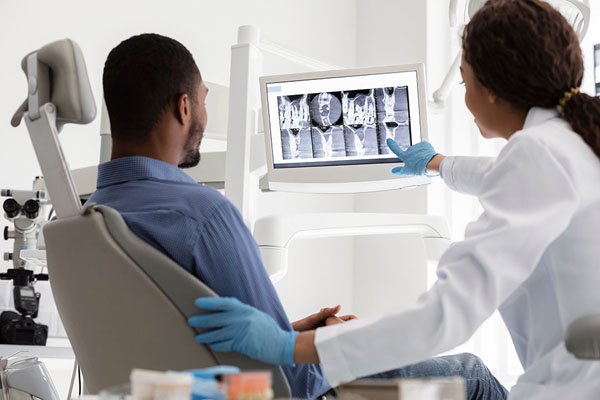Dental Bridge Candidacy
Can You Get a Dental Bridge?
Dental bridges are a popular restorative option for replacing missing teeth. They offer an effective solution that restores both the function and aesthetics of your smile. However, not everyone is an ideal candidate for dental bridges. By understanding who is a suitable candidate for dental bridges, you can make an informed decision about your dental care.
Find out if you may qualify for dental bridge treatment with our Prescott Valley dentist today. Schedule your appointment by calling us at (928) 772-8128.

Who Is an Ideal Candidate for a Dental Bridge?
While a thorough evaluation by a dental professional is necessary to determine individual candidacy, these general guidelines can help identify suitable candidates for dental bridges.
Missing Teeth
Dental bridges are primarily recommended for individuals who have one or more missing teeth in a row. They’re an excellent solution for those who have adjacent teeth that are healthy and can provide support for the bridge. However, the number of teeth a bridge can replace is typically limited to one to three teeth, depending on the location and the condition of the adjacent teeth.
Condition of the Abutment Teeth
The teeth adjacent to the missing space, known as the abutment teeth, play a crucial role in supporting the bridge. They must be healthy enough to provide adequate support. If the adjacent teeth have significant decay or gum disease, they may not be suitable as abutments unless they’re treated first.
Oral Hygiene Habits
Proper oral care is essential for the longevity of dental bridges. Patients must be committed to good oral hygiene to prevent problems like decay under the crowns of the bridge or gum disease.
Bite Alignment
Proper bite alignment is important for the longevity and function of dental bridges. If your bite is severely misaligned or if you have significant bite issues, our dentist may recommend alternative treatment options or additional procedures to ensure the success of the dental bridge.

Bone Health
Even though bridges don’t rely on the jawbone in the same way dental implants do, maintaining healthy bone and gum tissue is still essential. A bridge can fail if the surrounding bone and gums are not healthy.
Cost and Longevity Expectations
Dental bridges are less invasive than implants and often have a lower upfront cost, but they might need replacement or repair sooner than dental implants. Patients should consider the long-term implications and costs when choosing a tooth replacement option.
Aesthetic Concerns
Bridges can provide a seamless look, replacing missing teeth and blending in with the natural dentition. However, some patients might have specific aesthetic concerns that might make other options more desirable.
Alternatives to Dental Bridges
If dental bridges aren’t right for you, there are other restorative solutions our Prescott Valley dentist may recommend.
Dental Implants
Dental implants are titanium posts surgically placed into the jawbone, serving as artificial tooth roots. Once integrated with the bone, they can support crowns, bridges, or dentures. Offering the feel and function of natural teeth, implants help preserve jawbone integrity and don’t affect adjacent teeth.
Dentures
Dentures are removable dental prosthetics designed to replace missing teeth and surrounding tissues. They come in two primary types: complete, for those missing all teeth in an arch, and partial, for those with some natural teeth remaining. While offering a quick solution for tooth loss, dentures require periodic adjustments and may not provide the same stability as other replacement options.

Frequently Asked Questions
What if I have underlying dental issues, can I still get dental bridges?
Whether you can get dental bridges with underlying dental issues depends on the specific nature and severity of the issues. In some cases, it may be possible to address the underlying problems before proceeding with the dental bridge procedure. Your dentist will thoroughly evaluate your oral health to determine the best course of action.
Can I get a dental bridge if I have gum disease or decayed adjacent teeth?
Before placing a dental bridge, any underlying dental issues like gum disease or decay must be addressed. If the adjacent teeth are severely compromised, they may need treatment or restoration first. In some cases, if the supporting teeth are not salvageable, alternative tooth replacement options may be recommended.
Determine Your Candidacy for Dental Bridges
Dental bridges are an excellent solution for replacing missing teeth, but not everyone is a suitable candidate. Remember, a healthy and confident smile starts with a personalized treatment plan tailored to your unique circumstances.
Contact our dentist in Prescott Valley today at (928) 772-8128 or fill out our online form to schedule a consultation.
